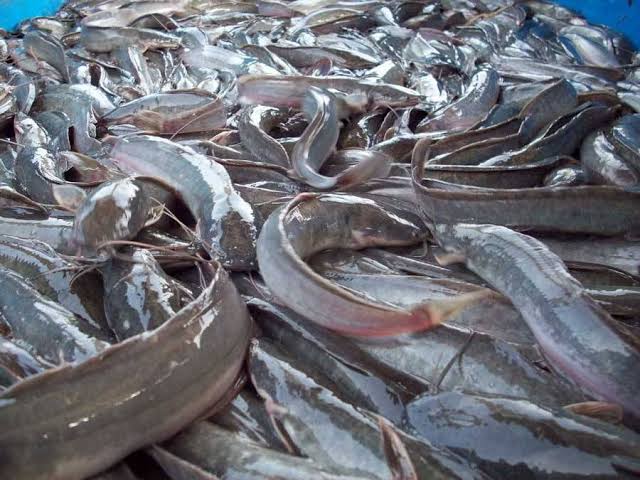Fishnet Alliance has urged policymakers to involve and engage artisanal fishermen in the formulation of fishery policies to preserve the traditional trade.
FishNet Alliance is a pan African network of fishers engaged in and promoting sustainable fishing practices in line with ecosystem limits.
The alliance is a pressure group that stands in solidarity in resistance to destructive extractive activities in water bodies including rivers, lakes, and oceans.
Health of Mother Earth Foundation (HOMEF), an environmental rights group and coordinator of Fishnet Alliance, made the call in a statement on Wednesday by its Media/Communication Lead, Miss Kome Odhomor.
Odhomor said that Fishnet Alliance was making the call for inclusion across Africa as part of its advocacy to commemorate the 2023 World Fisheries Day.
“As the world marks World Fisheries Day, it should be a time for reflection on the key issues affecting fisheries, particularly the artisanal and small-scale fisheries.
“A report published in 2021 showed how 10 countries — China, Japan, South Korea, Russia, the U.S., Thailand, Taiwan, Spain, Indonesia and Norway spent over 15.3 billion dollars on harmful fishing subsidies.
“The report also showed how fishing vessels not only exploited their seas but how they fished in high seas in other countries and engaged in overcapacity, overfishing, and illegal, unreported, and unregulated fishing.”
Odhomor said that another challenge faced by small-scale fishers was the issue of oil and gas pollution.
She observed that oil and gas exploration and exploitation as well as their associated infrastructure had proven to be one of the worst challenges in recent times.
Odhmor also observed that the issue of sand-filling of traditional fishing grounds like the one being experienced by the Makoko people in Lagos State, Nigeria, adversely affected fishing practices too.
“This year’s theme, “Build Enabling Policy Environments for Small-scale Artisanal Fisheries,” should evoke a sense of responsibility, accountability, equity, fairness, justice and inclusivity.
“Artisanal fishers must be consulted and included in the preparation of policies for aquatic environments – they hold a lot of knowledge that can shape such policies into pro-people and pro-environment policies.”
Odhomor quoted Dr Nnimmo Bassey, Executive Director, HOMEF, as lamenting the impacts of the Ororo Well 1 fire, which had been burning for over three years, on artisanal fishing.
Bassey said that it was shocking that the government and oil and gas companies would allow the Ororo-1 well inferno to continue for over three years off the coast of Awoye in Ondo State.
Bassey raised pertinent questions following the continuous burning of the Ororo Well.
“Huge amounts of hydrocarbons and climate-harming greenhouse gases are being released into the environment; why is the government quiet?
“Who will clean up, remediate, and restore the already destroyed environment?
“For a government that professes emphasis on the so-called blue economy, this atrocious negligence suggests that government is ready to sacrifice our environment and the communities that depend off natural resources,” Bassey said.
The renowned environment said that this year’s World Fisheries Day offers a good opportunity for the government to have a change of heart and do the needful.
Bassey also emphasised that the government must learn to work with coastal communities for better environmental management.
Odhomor also quoted Mr Stephen Oduware, HOME’s Project Officer in charge of FishNet Alliance, as saying that communities like Kono in Ogoniland needed attention.
Oduware said that Kono community, which used local and cultural means to preserve a mangrove area needed to be recognised, promoted, and supported.
He said that policymakers must bring artisanal fishers to the policy table to make contributions that would further strengthen maritime policies.


